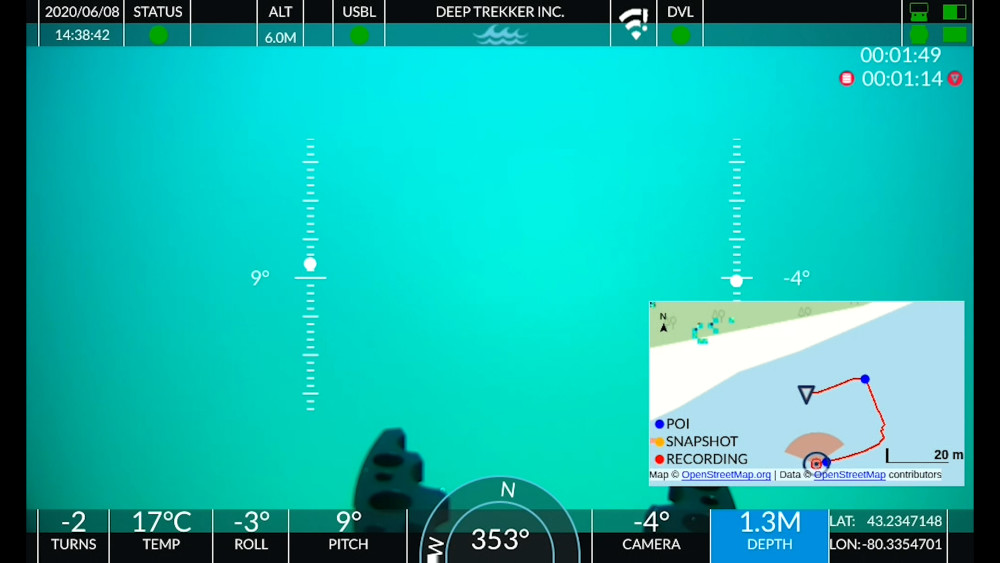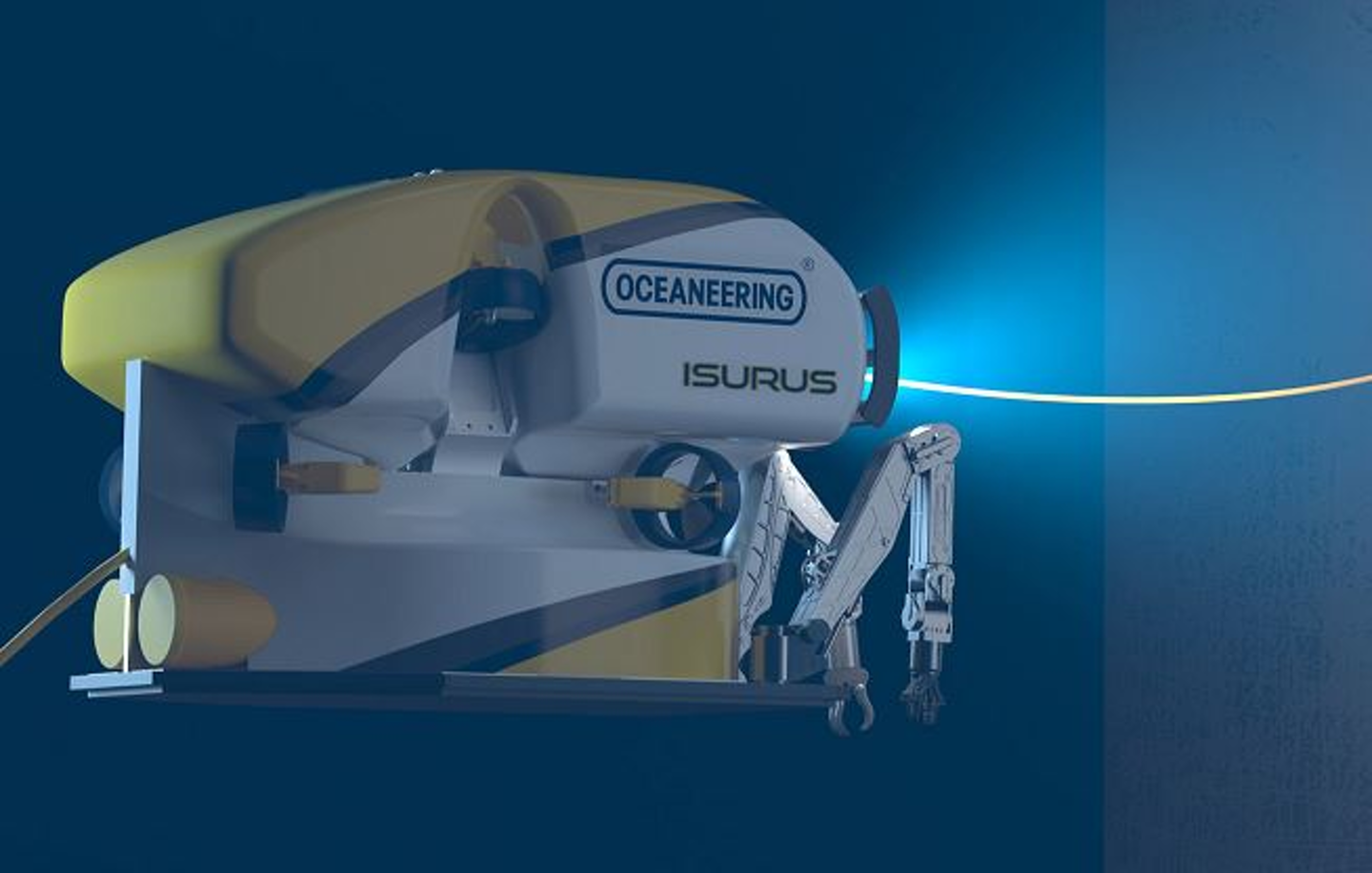Home › Forums › ROV › ROV Employment Discussion › What is an ROV Certificate
- This topic has 4 replies, 4 voices, and was last updated 12 years, 1 month ago by
Robert Black.
-
AuthorPosts
-
July 16, 2012 at 11:08 am #5373
Ray Shields
ParticipantRequirements: Passport, seaman’s book, education/university certificate, ROV certificate, safety training certificate including H2S/BA certificate, medical certificate.
Nautech,
maybe you can clarify from your Clients – what ROV Certificate do they want?
There is no format certification to be an ROV Pilot, there are various company competency schemes, there are NO official IMCA Certificates (IMCA specifically state that they do not certify anyone).
It is constantly a cause for confusion amongst personnel and companies, which mainly seems to stem from Training Schools who try and make everyone believe that you need a piece of paper from them to be allowed to operate ROVs.
ROV industry is NOT the same as Diver industry.
July 16, 2012 at 11:31 am #32928Robert Black
ParticipantAlas Ray, more and more of my clients are asking for an IMCA competency cert. The type of thing that MTCS will assess and issue. The IMCA word comes into it because the IMCA guidelines on competency are used when assessing the candidate. It isn’t actally an IMCA cert though as you rightly say.
It is becoming a reality fast though and I suspect that soon everybody will need one if they want client approval. Like the mark of the Beast for ROV people if you know your Revelations.July 16, 2012 at 12:04 pm #32929James McLauchlan
ParticipantThen I think it best that proof of ‘ROV competency to IMCA guidelines‘ is requested and not simply an ‘ROV cert’.
I feel the real problem stems from the fact that there is no governing body, nor global association dedicated to ROV related activities. It somehow seems to have fallen by default onto a private Association of Marine Contractors to try and sort it out by way of issuing guidelines.
I think there should be a minimum legal training requirement for ROV personnel. Failing that, a dedicated ROV association should fill the gap.
Personally I think it’s long overdue for HSE to step in, in the UK at least, as they did with diving and start to enshrine ROV safety (and safe operations thereof) into UK law.
Currently it appears that any Tom, Dick or Harry anywhere in the world can set up an ‘ROV School’ and pump out ‘trainees’ (touted as PT2’s) as long as they say (and not prove nor be audited to prove) that they train people to IMCA guidelines.
If a real grip isn’t taken on the ROV industry soon I can see accidents multiplying. IMCA would wash their hands of any comeback as they will indicate that they are not a governing body but only act in an advisory capacity.
July 16, 2012 at 3:13 pm #32930 Roy SimsonParticipant
Roy SimsonParticipantWell I did ask IMCA about Logs books , Because some company seems to think its mandatory .
This is a copy of the email I had back with names removed :-
Thank you for your enquiry to IMCA.
First of all I shall answer your direct question: IMCA does not make it mandatory that ROV personnel should carry IMCA ROV log books. IMCA as a trade association does not mandate, regulate or control members’ operations. The role of IMCA as a trade association is to offer good practice guidance in the area of competence and training amongst other areas.
That said, IMCA members and their clients are free to make it a requirement that ROV personnel should have an IMCA ROV log book, and many do so, as you have found.
Speaking strictly for myself, I don’t disagree with your analysis of how log books can be used, but that’s not the conventional wisdom and it won’t help with getting work in today’s world. Log books aren’t going away. IMCA and its members are well aware of the potential flaws of log books and of some of the ways in which proof of professional competence can be misrepresented and misused, but their use is widespread, driven by the clients, and in spite of some cases of misuse, log books certainly improve overall standards of competence across the industry.
Earlier this year we conducted a questionnaire amongst IMCA members’ field crew, getting replies from nearly 300 offshore guys in different parts of the world. Whilst there were some negative comments about competence requirements in general, it was conspicuous that respondents from the ROV technical community were supportive of the need for competence schemes.
IMCA itself does not certify or check background, previous work or anything like that. There is no service where you can send documents in to us and we check them. The arrangements for establishing your bona fides are entirely between you and the employer; IMCA only publishes a log book which may or may not be used.
As for whether or not you should have a log book, you have more experience than I in getting ROV work and would be the better judge. What is the market going to do? On the one hand, personnel shortage is almost an evergreen, permanent factor, given oil at $75/barrel or more…on the other hand, I can tell you that the entire business of proof of professional competence is not going to disappear any time soon.
Hope that is useful information.
…………………………………………………………………………………………….
In the end its what the client requests , All I know is I have seen many log books with many flying hours all stamped up and looks good !
However put the person on the sticks with crap vis and strong currents and its very clear that the person does not have the experience .
Cheers
Raptor
July 17, 2012 at 1:20 am #32931Robert Black
ParticipantAttached is IMCA005 from the website. Look at what a P/T II is meant to able to do before progressing. We all know of people with ten years behind them who couldn’t find their a*se with both hands let alone the worksite.
If we as operators, Supervisors and training establishments actually stuck to these guidelnes for assessment, all our lives would be easier as there would be much more competent pilots around and we wouldn’t find ourselves doing all the driving and fixing while two others on the shift looked on.
I don’t think the problem is IMCA as the ‘guidelines’ are fairly decent. It is all of our failure to actually stick to them and the ever present need to put bums on seats that is a big part of the problem.
Before anyone chimes in, I’m just as guilty in these busy days.imcac005_115.pdf Filename: imcac005_115.pdf 
Download -
AuthorPosts
- You must be logged in to reply to this topic.



